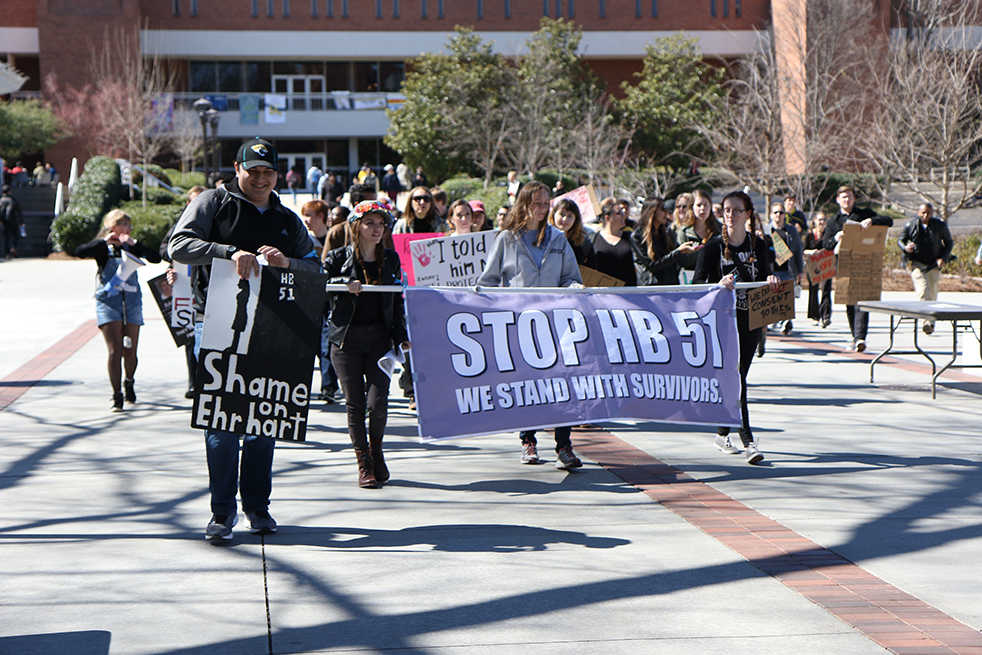During the current legislative session of the Georgia Senate, which convened on Jan. 8, Senate Bill 339 was first introduced to the senators and was then referred to the Higher Education Committee.
The bill, which concerns free speech policies on university campuses and the ways that administration should handle violations to these policies, was read to the Senate on Jan. 22.
It is to be reviewed by the committee on Feb. 13.
Georgia District 3 Senator William Ligon, Jr., who was the legislator who took point on writing the bill, said that he noticed cases concerning regulation of free expression taking place on campuses all over the country, such as administrations disinviting controversial speakers from campus or students shouting down speakers and not allowing them to speak.
Ligon said he wanted to make sure that this didn’t happen to those institutions of the University System of Georgia (USG).
“What we’ve seen in states that have enacted a bill like this, such as Wisconsin, is that free speech has been promoted and begins to flourish on campus,” Ligon said.
The bill was adapted from model legislation on free expression on college campuses that was developed by the Goldwater Institute.
The current bill makes several key points about free expression policies on college campuses but makes the overall assertion that “the primary function of an institution of higher education is the discovery, improvement, transmission, and dissemination of knowledge by means of research, teaching, discussion, and debate,” according to the body of the bill.
A few other introductory points are made by the bill, including the stipulation that it is not a university’s responsibility to shield individuals from any speech that is protected by the First Amendment, even if that speech is offensive or disagreeable to a person. The bill also states that students, faculty or any other individuals who would like to speak their mind on a college campus are free to do so and will be physically protected.
The bill also introduces disciplinary consequences for those who attempt to impede or obstruct another’s free expression. It states that if any student is twice found guilty of infringing on the First Amendment rights of another individual, he or she must be suspended for a minimum of a year or expelled.
“If someone comes to your campus to give a talk, everyone will be aware that if you stand up and disrupt that speaker and he can’t be heard, and students are there to hear the speech and learn, or challenge it and be exposed to new ideas, and they can’t do that, then there are consequences to that,” Ligon said.
Another provision of the bill ensures the creation of a Committee on Free Expression by the USG Board of Regents. This committee will be made up of at least 15 members and will annually report their findings on any relevant activities within USG.
Another item in the proposed bill is the inclusion of free expression policies and regulations in freshman orientation programs.
The bill defines the types of speech that are not protected by the First Amendment and that the university is therefore allowed to regulate or prohibit, such as harassment, violations of law or defamation. It also stipulates the limited reasons why a university might restrict expressive conduct in a public area of campus.
Tech has several free expression policies. Students, faculty and staff may express themselves in a variety of ways, including through reservations of outdoor spaces, signage and chalking sidewalks.
Members of the public are permitted to use the amphitheater adjacent to the Ferst Theatre for any kind of legal expression if they submit a request five days before the intended use.
